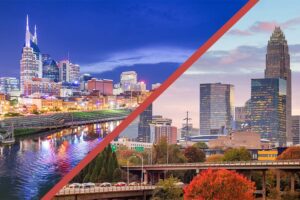
When people talk about the 1970s, they often talk about youth culture — disco and the hangover of the 60s — but the decade also saw retirement redefined as an institution. Medical advancements and the creation of Medicare meant that people were living longer and the period of economic prosperity following World War II allowed many to retire at a younger age, though some did not have a choice.
Traditional defined benefit pensions actually penalized participants who delayed retirement, with a more labor-intensive job market discouraging long-term employees from working past their physical prime. However, with an increase in Social Security and both government and employer medical benefits paying their bills, this generation retired much more comfortably than their parents. Elderly poverty rates declined sharply from 35 percent in 1959 to 15 percent by the 1970s.
After building miles of infrastructure, expanding welfare with the Great Society programs, and putting a man on the moon, the G.I. Generation retained their spirit of civic engagement in retirement. Popularizing the term “senior citizens,” retirees in the 1970s joined organizations like AARP en masse.
They moved to warm climates to spend their retirement years in comfort, and Florida and Arizona became key political states. Developers hoping to attract the pensions, Social Security, and savings of this generation designed communities specifically for retirees, with the idea of retirement as an extended vacation becoming more widespread. These were now Golden Years — a reward for a lifetime of hard work and achievement.
Retirement Now
Today, retirement typically happens much later in life. More Americans work office jobs that don’t wear on the body as much as factory work or construction and, in general, overall health has improved. As a result, employers and government encourage people to retire later in life. A study by the Center for Retirement Research at Boston College details the changes in policy that led to this cultural shift:
Employer-sponsored retiree health benefits, which generally provide health insurance to retirees before Medicare begins at age 65, are disappearing, making it more expensive for many workers to retire early. Social Security’s full retirement age (FRA) has increased, the retirement earnings test was eliminated in 2000 for those who have reached the FRA, and the delayed retirement credit is now eight times as high as it was in the mid 1970s. All of these changes have boosted work incentives at older ages.
While some of this sounds like bad news, many Baby Boomers are delaying retirement because they actually enjoy working. Those that have retired find that medical bills and daily living expenses can be stressful when your savings are your main safety net, but many are making it work with strategic financial planning and a thrifty lifestyle.
The G.I. Generation may have defined retirement as we know it, but Baby Boomers are turning that on its head. Modern retirees enjoy plenty of advantages that weren’t available in the 1970s. Social media allows them to stay connected with their loved ones and seek out other retirees with similar interests, whether they live in an active adult community or a bustling metropolitan area. Many are moving closer to their kids rather than escaping to remote leisure towns, but retirement communities are changing to attract them. Sun City, for example, has realized that its new residents may be more interested in hitting the gym or starting a band than playing golf — a far cry from that 1970s retirement.











